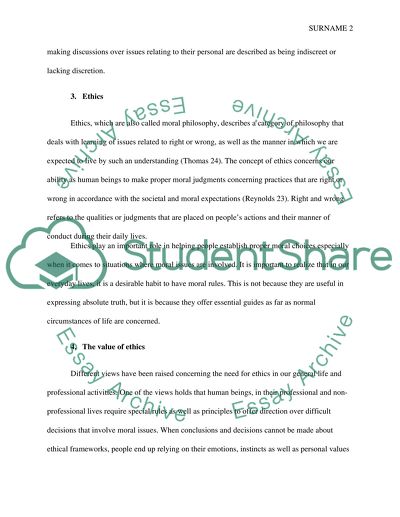Cite this document
(“When does the use of professional discretion cross ethical boundaries Research Paper”, n.d.)
Retrieved from https://studentshare.org/law/1658781-when-does-the-use-of-professional-discretion-cross-ethical-boundaries
Retrieved from https://studentshare.org/law/1658781-when-does-the-use-of-professional-discretion-cross-ethical-boundaries
(When Does the Use of Professional Discretion Cross Ethical Boundaries Research Paper)
https://studentshare.org/law/1658781-when-does-the-use-of-professional-discretion-cross-ethical-boundaries.
https://studentshare.org/law/1658781-when-does-the-use-of-professional-discretion-cross-ethical-boundaries.
“When Does the Use of Professional Discretion Cross Ethical Boundaries Research Paper”, n.d. https://studentshare.org/law/1658781-when-does-the-use-of-professional-discretion-cross-ethical-boundaries.


